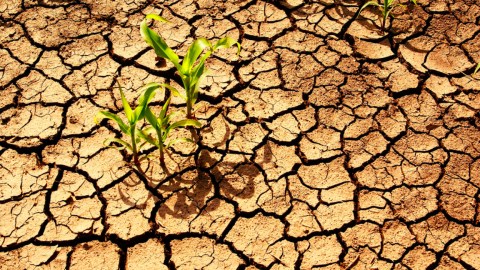Climate Change Is Going to Wreak Havoc on World Agriculture

We already know that climate change will impact our world in a number of ways, but now we have much more information specific to climate change and agricultural production. The prognosis is not good. New economic research from MIT shows that climate change is going to hit farmers really hard — well some of them at least.
“Some groups are concerned that agriculture doesn’t appear to be a topic up for discussion at the upcoming Paris climate talks. Sidelining the issue, they argue, could ignore its importance in a climate change-impacted world.”
According to projections, many countries are expected to see at least a 10 percent decline in agricultural productivity due to climate change, including several in Africa. The United States, however, isn’t predicted to see nearly as much of a decrease in production. One can’t help but wonder whether that potential inequality could have political ramifications in the future.
The MIT study looked at 11 different possibilities of trade and internal food production under a climate change scenario. They wanted to know what would happen if countries couldn’t continue to grow all the same crops they do today. While it may seem that countries could decide to specialize in just a couple of crops and trade for the crops that they need, the model suggested that countries won’t be able to trade their way out of climate-related food hardship. The researchers say that the internal country response to a food shortage will be a more dominant factor than trade.
Worldwide, researchers predicted a one-sixth decline in agricultural production.
MIT researchers aren’t the only ones concerned about the availability of food under a future of climate change. Other scientists agree that agriculture will suffer and also suspect we may face additional, related challenges. Water availability, for example, could decrease due to changes in rainfall patterns related to rising temperatures, and lack of enough water could then reduce our ability to maintain current crop output levels.
This tricky issue comes up just in time for the impending Paris climate talks, where world leaders are expected to hammer out a universal agreement on climate change for the first time. However, some groups are concerned that agriculture doesn’t appear to be a topic up for discussion. Sidelining the issue, they argue, could ignore its importance in a climate change-impacted world.
—
Stefani is a writer and urban planner based in Oakland, CA. She holds a master’s in City and Regional Planning from UC Berkeley and a bachelor’s in Human Biology from Stanford University. In her free time, she is often found reading diverse literature, writing stories, or enjoying the outdoors. Follow her on Twitter: @stefanicox





